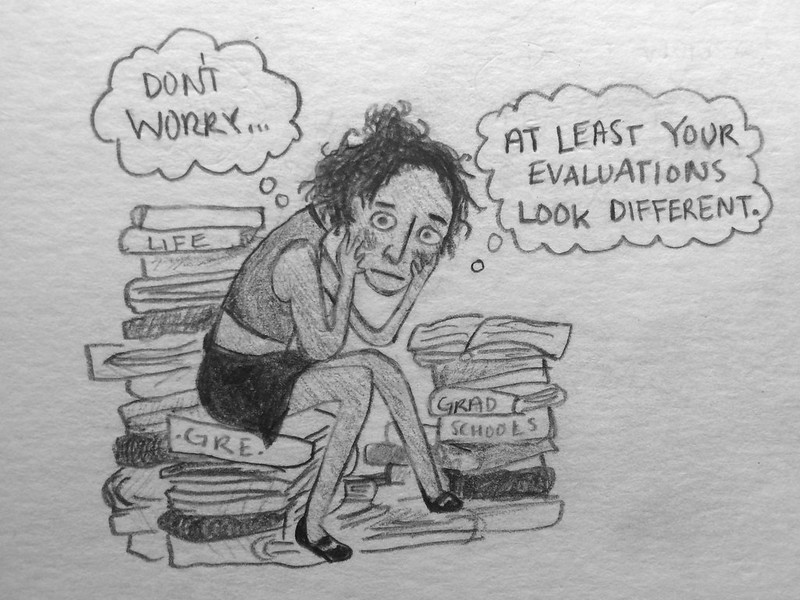 Every student is familiar with the feeling of anxiously waiting for narrative evaluations to be submitted by professors at the end of the semester. However, starting with the cohort of 2016, the school will introduce more structure to the unique and holistic academic system: evaluations will be split into two narrative sections allowing for more clarity and consistency.
Every student is familiar with the feeling of anxiously waiting for narrative evaluations to be submitted by professors at the end of the semester. However, starting with the cohort of 2016, the school will introduce more structure to the unique and holistic academic system: evaluations will be split into two narrative sections allowing for more clarity and consistency.
The first narrative section will be released in the official evaluation, only by request of the student. “What’s in the first section is what is eligible to go to other institutions,” said thesis student Ganga Braun. “What is placed there is at the discretion of the faculty. They may choose to put the entirety of your evaluation there, or just a few lines. If they only put a few lines there, they will likely be putting the bulk of your evaluation in the second section.”
The second section is for added comments used only for internal review and will be treated as evaluations have been in the past. This section is optional for professors and will not be sent to any institution. The feedback provided here may not be relevant to institutions, Braun said, but it is still important for students and advisors to read.
“I think the new policy will be tremendously beneficial to future students,” said third-year Kira Rib. “It will likely improve their graduate school applications and push professors to think more thoroughly about what they choose to put in our evaluations, and how they frame our performance.”
On Nov. 20, student representatives of the Educational Policy Committee gathered outside of ACE to discuss the narrative evaluation policy change passed by faculty in order to make sending transcripts easier for students. On Nov. 18, professors discussed the changes to the evaluation system including possible issues, and how this will benefit students applying to graduate schools.
“Students currently have no way to officially, through the Registrar’s Office, send their evaluations to other institutions,” thesis student Ganga Braun said. “When students do go through SES to print out their evaluations, it’s kind of messy and definitely a pain in the ass.”
Some students noted that they still have unfinished evaluations in their records. Additionally, many students have received narrative evaluations from professors that were inappropriate to send to graduate schools.
“Other professors have sloppy mistakes such as misspellings of student names,” Braun said. “This change will hopefully result in certain professors taking a bit more care and time to consider the audience of the evaluations.”
Other students have had similar experiences with less than satisfactory evaluations.
“I guess as a literature student, I’m used to getting late evaluations,” second-year Lily Solomon said. “I have one professor at least every semester who doesn’t turn in my evaluation ever. I’ve taken to lying and telling them I have to apply for an internship soon and could they please hurry up with my evaluation, and they do. I’m worried if I don’t do that, I’ll literally never get it.”
Professor Susan Marks who is on the committee to reform the evaluation system explained that the current narrative evaluations were not written to be officially shared, and therefore may not be officially shared by the school.
“Some people voice the concern that it would be too light and fluffy, that it might just become another recommendation letter,” Marks said. “[…] It’s too bad that all these big bureaucracies need to have all these things in front of them. The reality is nobody who is considering you for graduate school is going to read 30 evaluations, but do they want them? Yes? Does that mean anybody will look at them? How do they look at them?”
Marks is unsure of how the new evaluation system will be portrayed to graduate schools. “I think that our students do wonderful work, and it’s important they get taken seriously by grad schools,” Marks said. “Those of us who are on the committee, and those of us who voted in favor, wanted to see it made easier for the graduate schools to take our students’ applications seriously.”
